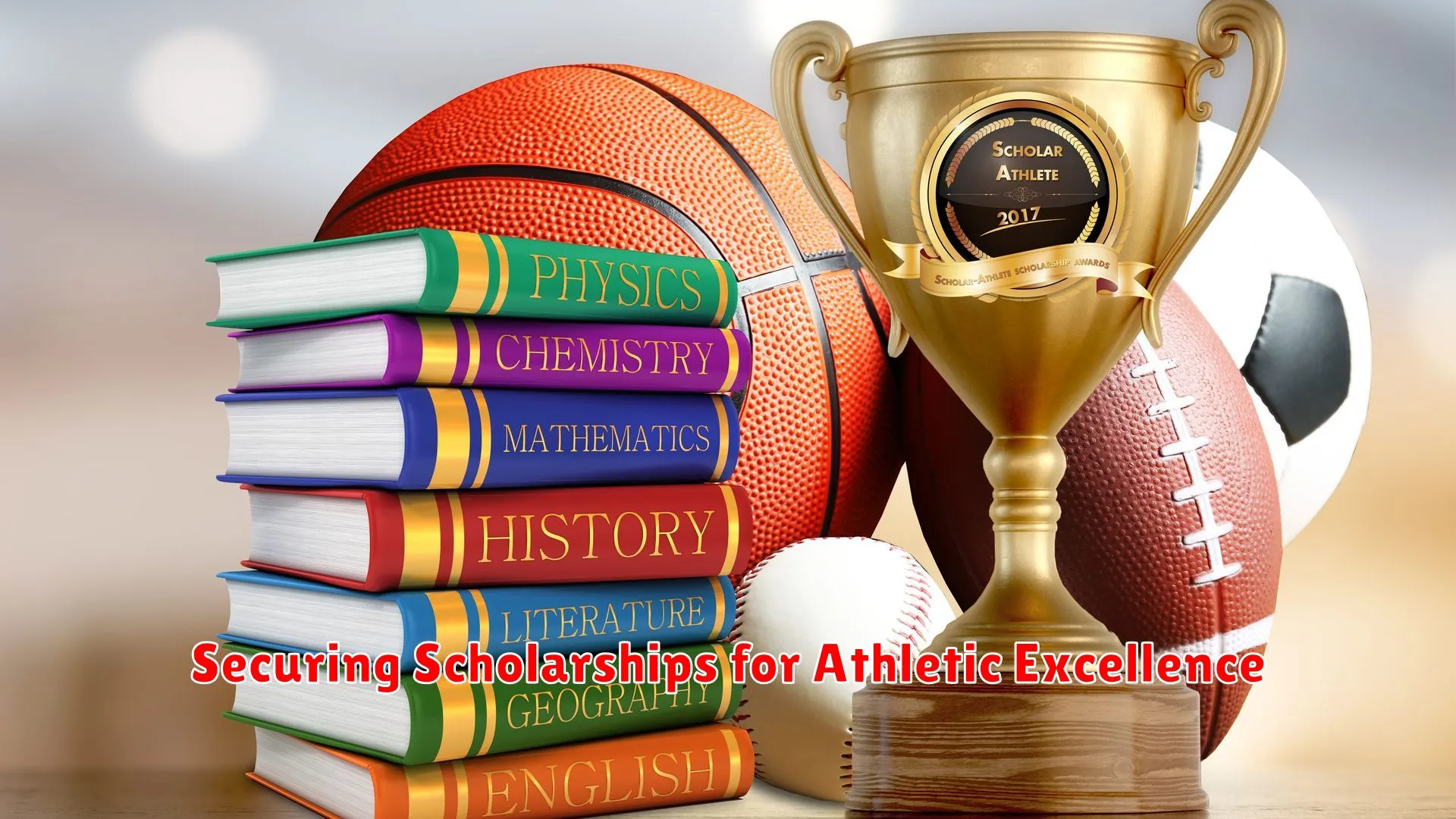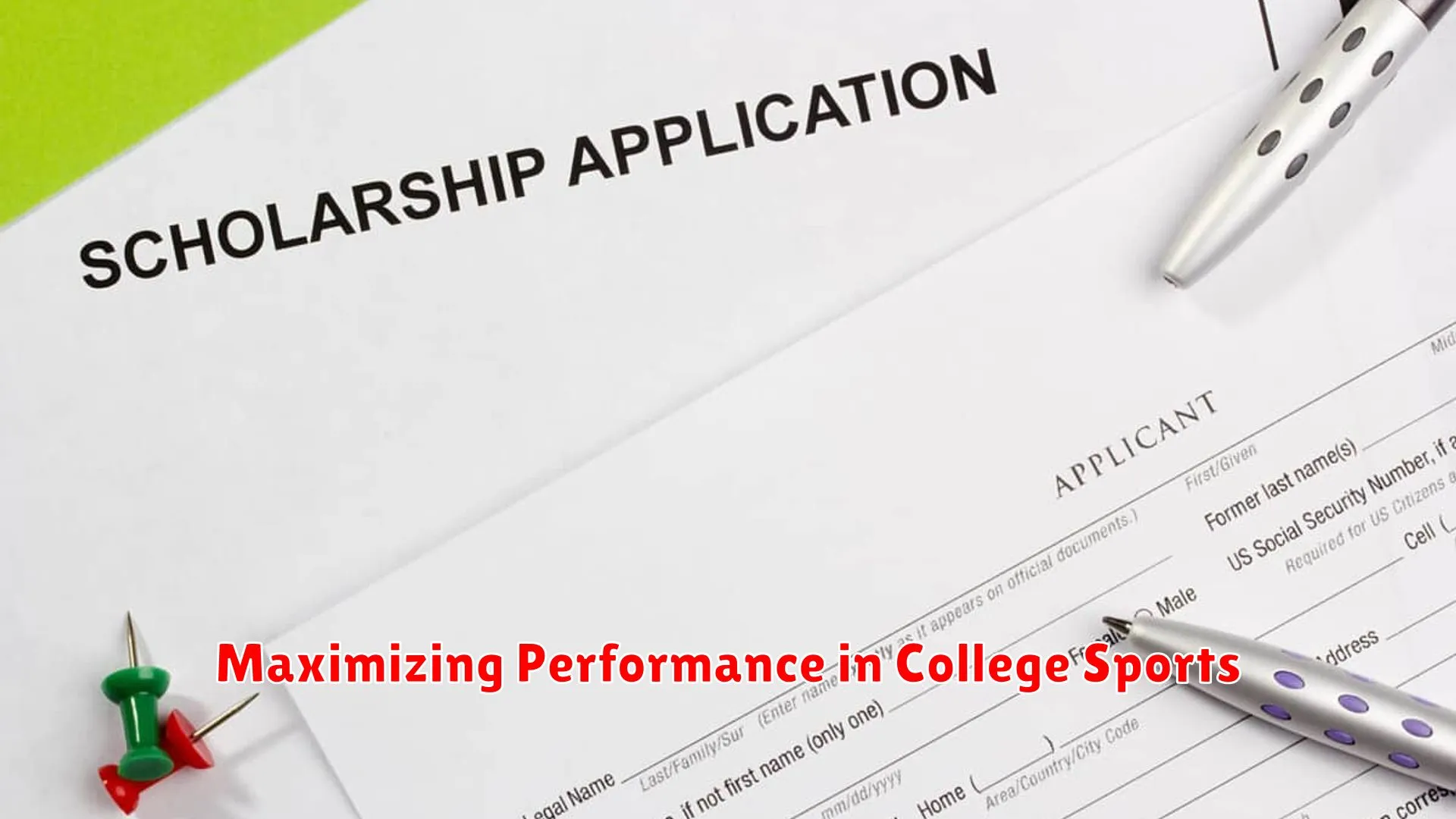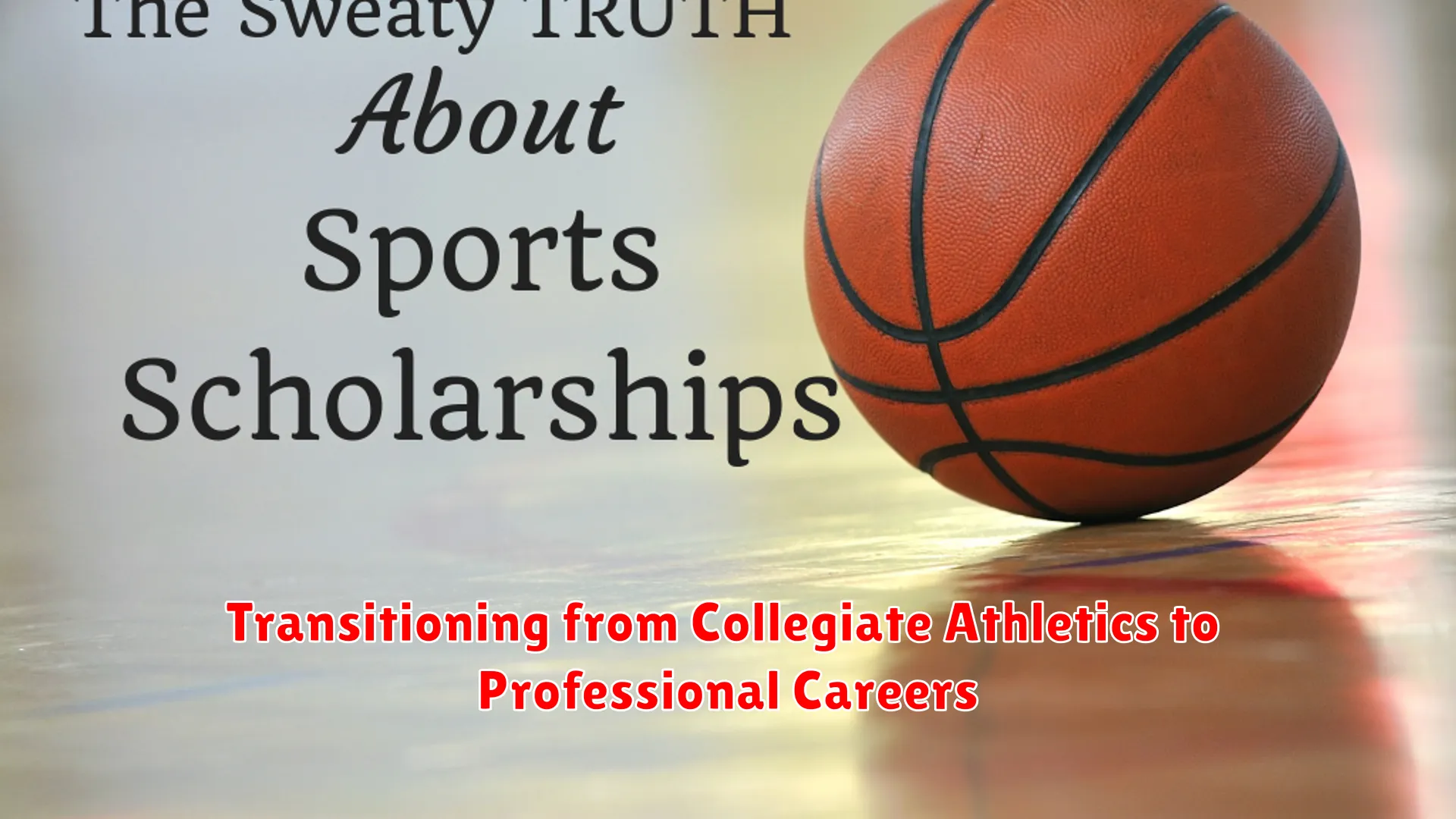Explore the competitive world of sports scholarships in the US, where talented athletes can turn their passion into educational opportunities. Uncover the benefits and challenges of pursuing athletic excellence while securing a college education.
Balancing Athletics and Academics

Athletes pursuing sports scholarships in the US face the challenge of balancing their athletic commitments with academic responsibilities. This delicate balance requires efficient time management and dedication to both sports and studies.
Time Management
Effective planning is crucial for student-athletes to excel both on the field and in the classroom. By creating a detailed schedule that includes training sessions, competitions, study hours, and rest, athletes can optimize their daily routine.
Prioritizing Tasks
Identifying priorities is essential for athletes to manage their time wisely. Balancing intense sports training with academic assignments requires setting clear goals and deadlines to ensure that both aspects of their lives receive the necessary attention.
Seeking Support
Student-athletes benefit from seeking support from coaches, teachers, and academic advisors. Communication is key in ensuring that athletes receive the assistance they need to navigate the demands of their athletic and academic commitments.
Securing Scholarships for Athletic Excellence

Athletic excellence can open doors to valuable scholarship opportunities for student-athletes in the United States. Scholarships for sports are available at various levels, from high school to college, and can provide financial support for education while pursuing athletic passions.
One common route for securing sports scholarships is through collegiate athletics programs. Many universities offer scholarships for talented athletes, covering expenses such as tuition, room and board, and even textbooks. These scholarships can be highly competitive, requiring athletes to demonstrate exceptional skills and dedication in their respective sports.
Student-athletes looking to secure scholarships for athletic excellence should focus on maintaining a strong academic record. Academic performance is often a key factor considered by scholarship committees, highlighting the importance of balancing sports achievements with classroom success.
Another avenue for obtaining sports scholarships is through external organizations and sponsorships. Various sports associations, foundations, and corporations offer scholarships to support promising athletes in their pursuit of both athletic and academic success.
It is essential for student-athletes to start the scholarship search early and stay proactive in exploring opportunities. Building a strong athletic profile with achievements, records, and recommendations can enhance the chances of receiving sports scholarships and opening doors to further education through sports.

When it comes to pursuing sports scholarships in the United States, it is essential for student-athletes to understand and navigate the regulations set forth by the National Collegiate Athletic Association (NCAA). The NCAA governs the rules and guidelines for college athletics, including the distribution of scholarships to student-athletes across various sports programs.
One key aspect of NCAA scholarship regulations is the eligibility criteria that student-athletes must meet to qualify for scholarships. These criteria often include academic requirements, amateurism rules, and compliance with NCAA rules and regulations. It is crucial for student-athletes to maintain their amateur status and adhere to the NCAA guidelines to remain eligible for scholarships.
Additionally, understanding the different types of NCAA scholarships available is important for student-athletes looking to secure financial aid for their college education. Scholarships can vary in terms of coverage, duration, and renewal criteria, so it is important for student-athletes to research and familiarize themselves with the options offered by the NCAA.
Moreover, staying informed about the NCAA’s recruiting rules and processes is essential for student-athletes navigating the scholarship landscape. The NCAA has strict regulations regarding recruiting practices, official visits, and communication between coaches and student-athletes. It is crucial for student-athletes to follow these rules to maintain their eligibility for scholarships.
Maximizing Performance in College Sports

Maximizing performance in college sports is essential for athletes looking to secure sports scholarships in the US. To achieve peak performance, athletes must prioritize several key factors in their training and overall lifestyle.
1. Establishing a Consistent Training Routine
Consistency is key when it comes to improving athletic performance. Athletes should work with coaches to develop a structured training program that targets both physical fitness and skill development. By adhering to a regular training schedule, athletes can improve their strength, speed, agility, and endurance.
2. Proper Nutrition and Hydration
Athletes must fuel their bodies with the right nutrients to optimize performance. A diet rich in lean proteins, complex carbohydrates, and essential vitamins and minerals is crucial for maintaining energy levels and supporting muscle recovery. Hydration is also key to preventing fatigue and ensuring peak performance during training and competition.
3. Rest and Recovery
Rest is just as important as training when it comes to maximizing performance. Athletes should prioritize getting enough sleep each night to allow their bodies to recover from intense training sessions. Incorporating rest days into their training schedule is essential for preventing burnout and reducing the risk of injury.
4. Mental Preparation
Athletes must not overlook the importance of mental preparation in achieving optimal performance. Techniques such as visualization, goal setting, and mindfulness can help athletes stay focused and mentally sharp during training and competition. Developing a positive mindset and maintaining confidence are also critical for success in college sports.
By focusing on these key areas – training consistency, nutrition and hydration, rest and recovery, and mental preparation – athletes can enhance their performance and increase their chances of securing sports scholarships in the competitive landscape of college sports in the US.
Transitioning from Collegiate Athletics to Professional Careers

For aspiring athletes, the journey from collegiate athletics to a professional career is a significant transition marked by challenges and opportunities. The experience gained from participating in sports at the college level can provide a strong foundation for success in professional endeavors.
One key advantage of transitioning from collegiate athletics to a professional career is the valuable skills and attributes developed through sports participation. Athletes often possess discipline, teamwork, leadership, and resilience – qualities that are highly sought after in the professional world.
Furthermore, the exposure gained from competing in collegiate sports, especially at a high level, can help athletes build a strong network of contacts within the sports industry. This network can open doors to various opportunities for career advancement and development.
Additionally, the discipline and time management skills acquired through managing both academics and athletics in college can prove invaluable in balancing the demands of a professional career. Athletes are accustomed to setting goals, working under pressure, and achieving results – all essential elements in the professional world.
As athletes transition to the professional realm, they may need to adapt to new challenges such as increased competitiveness, higher stakes, and greater scrutiny. However, with the dedication and commitment instilled during their collegiate athletic career, they are well-equipped to thrive in these new environments.
Conclusion
Athletes seeking higher education in the US can leverage sports scholarships for academic and athletic success, bridging the gap between sports and education.




